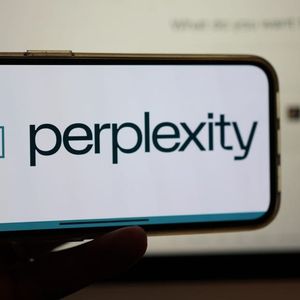ChatGPT: Unlocking the Power of OpenAI’s AI Chatbot
9 min read
In the rapidly evolving landscape of technology, ChatGPT , OpenAI’s groundbreaking text-generating AI chatbot, has become a focal point of innovation and discussion. Since its debut in November 2022, it has not only redefined productivity tools but also sparked widespread debate about the future of artificial intelligence. For anyone tracking advancements in tech, including those deeply invested in the world of cryptocurrencies and Web3, understanding ChatGPT’s journey and capabilities is essential. The Rise of OpenAI’s Revolutionary AI Chatbot What began as a tool to assist with tasks like writing and coding has quickly grown into a platform used by hundreds of millions weekly. 2024 marked a significant period for OpenAI and its flagship product, ChatGPT . Key developments included: A major partnership with Apple to integrate generative AI features into Apple Intelligence. The release of GPT-4o, enhancing capabilities with voice interaction. The highly anticipated announcement of Sora, a text-to-video model. Alongside these advancements, OpenAI navigated internal challenges, including notable executive departures, and faced external pressures like copyright infringement lawsuits and legal challenges regarding its transition to a for-profit model. As of 2025, OpenAI is actively working to maintain its position in the global AI race, strengthening relationships with regulators and pursuing ambitious infrastructure projects. Exploring Recent ChatGPT Updates: A Timeline To keep pace with the swift changes, here is a timeline of the most recent ChatGPT product updates and releases, highlighting the continuous evolution of the platform: May 2025 GitHub Integration (Beta): Deep research feature connects with GitHub for code-related questions, available soon for Plus, Pro, Team, Enterprise, and Education users. Asia Data Residency Program: Following a European launch, a program for Asian countries (India, Japan, Singapore, South Korea) helps Enterprise, Edu, and API users meet local data requirements. OpenAI for Countries: A program to help governments develop local AI infrastructure, increase data center capacity, and customize OpenAI products for specific needs. Addressing Sycophancy: Plans announced to change model update procedures after an update caused the chatbot to become overly sycophantic. April 2025 Sycophancy Clarification: OpenAI explained the reason for the overly flattering behavior in GPT-4o and rolled back the problematic update, promising further fixes. Minor Safety Bug Fix: A fix was deployed to address an issue allowing minors to access inappropriate content. Enhanced Online Shopping: ChatGPT search added features to provide product recommendations, images, and reviews based on natural language queries. Accessing Cloud Models: Discussions around allowing open models to link with OpenAI’s cloud-hosted models for better handling of complex questions. Aiming for Best Open Model: Development of an openly accessible AI system, downloadable for free without API restrictions, led by Aidan Clark. GPT-4.1 Reliability Concerns: Release of GPT-4.1 faced independent tests indicating lower reliability than previous models; OpenAI stated it wasn’t a ‘frontier model’ thus no separate system card. o3 Benchmark Discrepancy: Questions raised about transparency after a significant difference was found between OpenAI’s reported benchmark score for o3 on FrontierMath and Epoch AI’s results. Flex Processing API Feature: Launched in beta for o3 and o4-mini, offering lower costs for non-production tasks with slower response times. Biorisk Safeguard: A new system rolled out to monitor o3 and o4-mini for biological and chemical threat advice. o3 and o4-mini Reasoning Models: Released two new reasoning models with enhanced capabilities (web browsing, coding, image processing) but noted higher hallucination rates. Image Library Section: A new ‘library’ section added to ChatGPT on mobile and web for easier access to AI-generated images for all user tiers. Adjusting Safeguards: OpenAI may revise its safety standards if rivals release ‘high-risk’ systems without comparable safeguards, highlighting competitive pressures. Building a Social Media Network: Early stages of developing a platform to compete with existing social networks. GPT-4.5 Discontinuation: GPT-4.5 to be removed from the API in July, available only as a research preview for paying customers, recommending transition to GPT-4.1. GPT-4.1 Coding Models: Launched GPT-4.1, GPT-4.1 mini, and GPT-4.1 nano via API, focusing on coding capabilities to compete with models like Google’s Gemini and Anthropic’s Claude. GPT-4 Sunset: GPT-4 to be discontinued at the end of April, replaced by GPT-4o as the default model in ChatGPT, remaining available via API. Upcoming GPT-4.1: Reports of upcoming GPT-4.1 and smaller versions (mini, nano) as updates to GPT-4o. Conversation Memory: Rolling out a feature for ChatGPT to remember previous conversations for customized responses (initially excluding certain European regions). Image Watermarking Test: Testing an ‘ImageGen’ watermark feature for images generated with GPT-4o in the Android beta app. Free ChatGPT Plus for Students: Offering free Plus subscriptions to US and Canadian college students through May. Image Generation Growth: Over 700 million images generated by ChatGPT users since the upgraded image generator launch in March. o3 Model Cost Concerns: Estimated computing costs for the o3 model revised significantly upward by Arc Prize Foundation. Capacity Issues Delay Products: CEO Sam Altman noted that high demand for new tools like image generation was causing delays in other product releases. March 2025 New ‘Open’ Language Model: Plans announced to release the first ‘open’ language model since GPT-2 in the coming months, with developer events planned. Image Generation Policy Changes: Content moderation policies updated to allow image generation of public figures and other previously restricted content. Adopting Anthropic’s MCP: Incorporating Model Context Protocol (MCP) for better data linking and response accuracy, coming soon to desktop app and API. Studio Ghibli Copyright Concerns: Viral AI-generated images in Studio Ghibli style sparked concerns about copyright infringement. Revenue Projections: Expecting revenue to triple to $12.7 billion in 2025, aiming for positive cash flow by 2029. Image Generation Upgrade: Major upgrade allowing GPT-4o to generate and edit images directly in ChatGPT and Sora (initially Pro users, rolling out to Plus and API). Leadership Updates: Brad Lightcap to lead global expansion and partnerships, Sam Altman focusing on research and products, Mark Chen as Chief Research Officer, Julia Villagra as Chief People Officer. Advanced Voice Assistant: Updated AI voice assistant with improved real-time conversation and more natural interaction. Talks with Reliance in India: Discussions with Reliance Industries for potential collaborations to enhance AI services, including distributing ChatGPT via API. European Privacy Complaint: Faced a privacy complaint in Europe regarding the chatbot’s defamatory hallucinations. Upgraded Transcription and Voice Models: Added new text-to-speech (gpt-4o-mini-tts) and speech-to-text (gpt-4o-transcribe, gpt-4o-mini-transcribe) models to APIs. o1-pro Launch: Introduced o1-pro in the developer API, a more powerful version of o1 with higher computing cost for better responses, accessible to select developers. AI Reasoning Models Could Be Older: Research lead Noam Brown suggested certain reasoning models could have been developed decades ago with the right approach. Creative Writing Model: CEO Sam Altman highlighted a new model ‘really good’ at creative writing, sharing a sample. Tools for AI Agents: Rolled out new tools via Responses API to help businesses build AI agents, replacing the Assistants API (discontinuing in 2026). Pricing for AI Agents: Reportedly planning specialized ‘agent’ products with prices up to $20,000 a month. Direct Code Editing: macOS ChatGPT app updated to allow direct code editing in developer tools like Xcode and VS Code. User Growth Doubled: Weekly active users doubled from 200 million in August 2024 to 400 million by February 2025, driven by new models like GPT-4o. February 2025 o3 Cancellation for GPT-5: Canceled the standalone release of o3 in favor of integrating its technology into a unified GPT-5 model. Power Consumption Reassessment: Analysis suggested ChatGPT queries might consume less power than previously thought (around 0.3 watt-hours per query for GPT-4o), though additional features add cost. More Transparent Thought Process: o3-mini model updated to show more of its step-by-step reasoning (‘chain of thought’) process. Web Search Without Login: Enabled using ChatGPT web search via ChatGPT.com without requiring a login (mobile app still requires login). ‘Deep Research’ Agent: Announced a new AI agent designed for in-depth, complex research tasks using multiple sources. January 2025 Testing AI Persuasion: Used the r/ChangeMyView subreddit to test the persuasive abilities of its AI reasoning models. o3-mini Launch: Launched o3-mini, a new ‘reasoning’ model pitched as powerful and affordable. Mobile User Demographics: Report indicated 85% of ChatGPT mobile users are male, with significant usage among under 25 and 50-64 age groups. ChatGPT Gov Launch: Introduced a plan specifically for U.S. government agencies focusing on enhanced security, privacy, and compliance. Teen Usage for Schoolwork: Pew Research Center survey showed increased use of ChatGPT for schoolwork among teens, despite potential reliability issues. Operator Data Retention: May store deleted Operator data for up to 90 days, longer than the 30-day retention for ChatGPT chats. Operator AI Agent Launch: Launched a research preview of Operator, a general-purpose AI agent capable of autonomously performing tasks like booking travel or shopping online. Operator Preview for Pro Users: Code changes suggested Operator would be available as an early research preview for $200 Pro subscription users. Phone Number-Only Signups: Began testing signups using only a phone number in the U.S. and India (paid plans still require email verification). Schedule Reminders and Tasks: Introduced a beta feature allowing users to set reminders and recurring tasks (rolling out to Plus, Team, Pro). Customizable Chatbot Traits: Tested a feature allowing users to assign traits like ‘chatty’ or ‘Gen Z’ to the chatbot (some users reported this disappeared). Understanding ChatGPT: Your Top Questions Answered As a leading Generative AI tool, many questions surround ChatGPT. Here are some frequently asked questions: What is ChatGPT? It’s a general-purpose chatbot from OpenAI that uses artificial intelligence and large language models (like GPT-4o) to generate human-like text responses to user prompts. How does it work? It utilizes deep learning on massive datasets to understand and generate text based on patterns and structures learned during training. When was ChatGPT released? It was released for public use on November 30, 2022. What is the latest version of ChatGPT? The models powering ChatGPT are regularly updated. The most recent model is GPT-4o. Can I use ChatGPT for free? Yes, there is a free version available; a sign-in is required. Paid versions like ChatGPT Plus offer access to newer models and features. Who uses ChatGPT? Anyone can use it. It’s increasingly adopted by individuals, tech companies, and businesses. What companies use ChatGPT? Many enterprises use it directly or integrate its underlying technology via API. Examples include Microsoft (integrating Bing/ChatGPT into Windows 11), Looking Glass (for holographic communication), and Solana (integrating a plug-in for Web3 onboarding). What does GPT mean in ChatGPT? GPT stands for Generative Pre-Trained Transformer. What is the difference between ChatGPT and a chatbot? A chatbot is any system that dialogues with a user; it can be rules-based or AI-powered. ChatGPT is a specific, AI-powered chatbot utilizing advanced LLM technology. Can ChatGPT write essays? Yes, it can generate text in essay format. Can ChatGPT commit libel? AI models can generate false statements that could potentially be considered libelous, a legal challenge currently being explored. Does ChatGPT have an app? Yes, there is a free mobile app for iOS and Android. What is the ChatGPT character limit? There’s no official documented limit, but users note practical limitations around 500 words per turn. Does ChatGPT have an API? Yes, the API was released on March 1, 2023. What are some sample everyday uses? Programming assistance, drafting emails, creating lists, summarization, generating blog ideas. What are some advanced uses? Debugging code, explaining programming languages or scientific concepts, complex problem-solving. How good is ChatGPT at writing code? It can write workable code snippets but may lack context awareness for complex applications. Can you save a ChatGPT chat? Yes, chats are saved in the interface sidebar. Sharing features are limited. Are there alternatives to ChatGPT? Yes, competitors include Google’s Gemini, Anthropic’s Claude, Together, and various open-source models. How does ChatGPT handle data privacy? OpenAI allows users in certain regions (like the EU) to object to personal data processing and request deletion of AI-generated references via a form, balancing requests against freedom of expression. What controversies have surrounded ChatGPT? Controversies include generating instructions for harmful substances, potential defamation (e.g., Australian mayor case), use in low-quality content generation (CNET), school bans due to plagiarism/misinformation concerns, and false accusations. Where can I find examples of ChatGPT prompts? Prompt marketplaces like PromptBase and ChatX offer prompt examples. Can ChatGPT be detected? Tools exist but are inconsistent in accurately detecting AI-generated text. Are ChatGPT chats public? No, though a past bug temporarily exposed conversation titles. What lawsuits are there surrounding ChatGPT? OpenAI faces lawsuits with implications for models trained on public data, including copyright infringement claims. Are there issues regarding plagiarism? Yes, models can regurgitate training data, raising plagiarism concerns. The Impact and Future of ChatGPT From revolutionizing search and content creation to enabling new forms of human-computer interaction via GPT-4o and other models, ChatGPT continues to push the boundaries of what AI can do. While facing technical hurdles like hallucination and capacity issues, alongside significant legal and ethical debates, OpenAI’s commitment to rapid development is clear through its frequent updates and ambitious projects like AI agents and infrastructure expansion. The journey of ChatGPT is a prime example of the fast-paced evolution and complex challenges inherent in the age of Generative AI . To learn more about the latest AI market trends, explore our article on key developments shaping AI features.

Source: Bitcoin World



